From the Chicago Reader (September 14, 2007). –J.R.
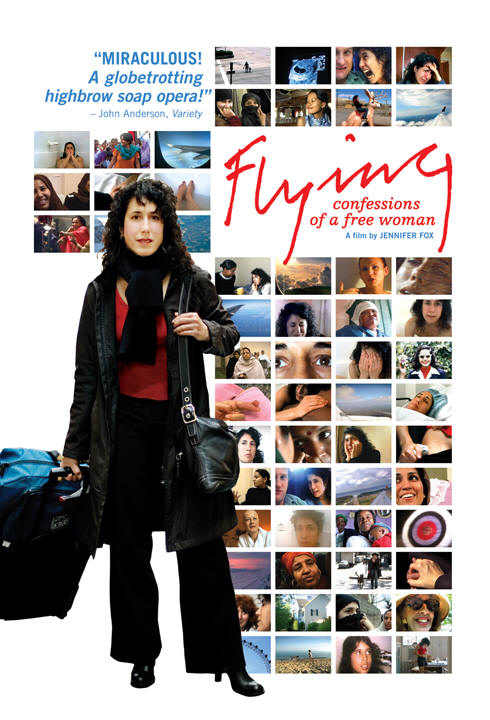
FLYING: CONFESSIONS OF A FREE WOMAN ***
DIRECTED AND WRITTEN BY JENNIFER FOX
There’s something nervy about the way Jennifer Fox, in her new autobiographical six-part, six-hour miniseries, showing this week at the Gene Siskel Film Center, tries to combine her life, her art, and her politics. Made with funding from the Danish Film Institute over a four-year period ending in late 2006, Flying: Confessions of a Free Woman recounts the privileges, confusions, and self-examinations of Fox, a Manhattan-based filmmaker in her mid-40s who grew up associating her freedom with being like a boy, feeling much closer to her permissive father than to her disapproving mother, and never having the slightest interest in getting married or (until recently) having kids.

Known for such PBS documentaries as Beirut: The Last Home Movie (1987) and An American Love Story (1999), a miniseries about the everyday life of an interracial couple, Fox does a fair amount of globe-trotting, and during the time frame of Flying she’s juggling two lovers on separate continents who know about each other. The less serious relationship is with Patrick, a Swiss-German cinematographer she sees more often, mainly in New York (he’s credited as the film’s “technical supervisor”). Read more
From the Chicago Reader (January 2, 2004). — J.R.
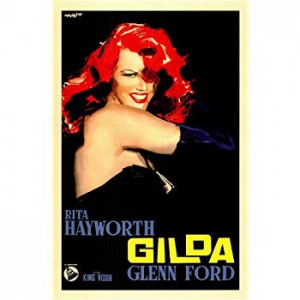
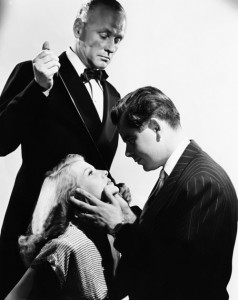
André Bazin reportedly once hypothesized that if Hollywood were the court of Versailles, Gilda (1946) would have been its Phedre — which may just be a fancy way of pointing out the enduring greatness of a campy melodrama that, from certain points of view, isn’t even very good. Directed by Charles Vidor, memorably shot by Rudolph Maté, and written by Marion Parsonnet, it’s set in a highly fanciful Buenos Aires (with mountains), where a professional gambler (Glenn Ford) goes to work for a casino owner (George Macready) who then marries the gambler’s old flame (Rita Hayworth), thereby setting off the sickest and weirdest bout of repressed love and hatred (both hetero- and bisexual) you ever saw. And Hayworth, whether she’s performing “Put the Blame on Mame” (dubbed by Anita Ellis) or just being her glamorous self, was never more magnificent. With Joseph Calleia and Steve Geray. 110 min. (JR)

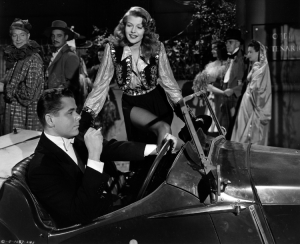 Read more
Read more
Written for FIPRESCI’s web site (fipresci.org) on November 7, 2012. — J.R.
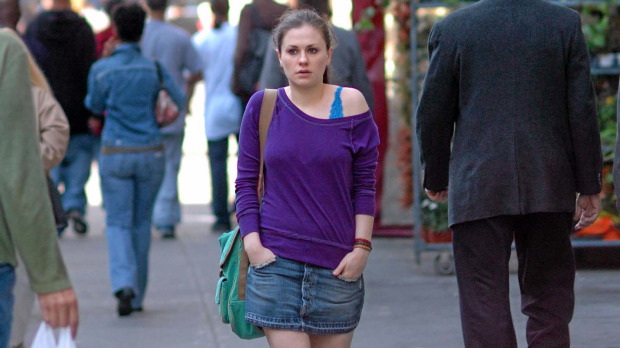
The potential everyday glibness of journalism is surely one of the key factors that distinguishes film reviewing from film criticism. This was painfully brought home to me shortly after reseeing at the Viennale the 150-minute version of Kenneth Lonergan’s remarkable Margaret, the winner of my jury’s FIPRESCI prize, almost a year after first encountering the film at the Gene Siskel Film Center in Chicago. In between these two viewings, I saw Lonergan’s 186-minute cut of the same film on a Blu-Ray containing both versions of the film, prompting me to write the following paragraph in my latest column for the Canadian quarterly Cinema Scope:
“I’m grateful to Kenneth Lonergan for clarifying in interviews that the 150-minute Margaret, which I saw in December 2011 and the 186-minute cut, which I saw in July, are both ‘director’s cuts,’ and now that Fox has released both in one Blu-Ray package, it’s hard to say which version I prefer. Both are brilliant messes and finely distilled renderings of the New York Jewish upper-middle-class zeitgeist circa 2003, regardless of whether one regards Anna Paquin’s teenage heroine as someone to identify with (apparently the writer-director’s position), or as monstrous, or as both (my position). Read more







